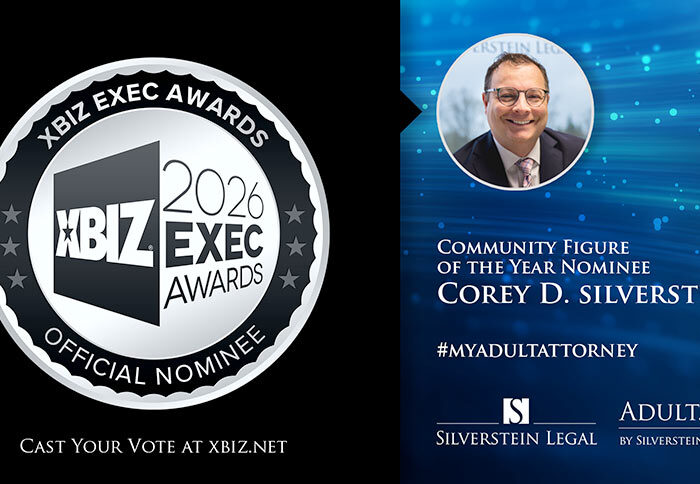Los Angeles, California – Corey D. Silverstein, the driving force behind MyAdultAttorney.com and Adult.Law, is…

The Interstate Obscenity Definition Act would rewrite SCOTUS’s definition of obscenity.
A bill that rewrites the legal definition of “obscenity” could potentially change the internet as we know it.
Last week, Republican Utah Sen. Mike Lee and Illinois Rep. Mary Miller reintroduced the Interstate Obscenity Definition Act (IODA), which would redefine what is considered “obscene” material. Obscenity isn’t protected by the First Amendment, which enshrines freedom of speech.
“It may as well be an outright ban on pornography,” adult industry attorney Corey D. Silverstein told Mashable, “because basically, under [Lee’s] definition, all adult entertainment, all forms of pornography, will be deemed obscene.”
Obscenity, porn, and the law
Obscenity is “outside the bounds of the First Amendment,” explained Mike Stabile, director of public policy at adult industry trade organization, the Free Speech Coalition. “You cannot distribute it, you can’t sell it, you can’t post it online…it is something you can be prosecuted for.”
In U.S. law, obscenity is currently determined by the “Miller test,” a three-part test introduced after the 1973 Supreme Court case Miller v. California:
- whether “the average person, applying contemporary community standards” would find that the work, taken as a whole, appeals to the prurient [shameful or morbid sexual] interest…
- whether the work depicts or describes, in a patently offensive way, sexual conduct specifically defined by the applicable state law, and…
- whether the work, taken as a whole, lacks serious literary, artistic, political, or scientific value.
All three parts must be proven in order for material to be deemed “obscene” — not protected under the First Amendment.
IODA would redefine obscene material as visual media that:
- taken as a whole, appeals to the prurient interest in nudity, sex, or excretion;
- depicts, describes, or represents, an actual or simulated sexual act or sexual contact, actual or simulated normal or perverted sexual acts, or lewd exhibition of the genitals, with the objective intent to arouse, titillate, or gratify the sexual desires of a person; and
- taken as a whole, lacks serious literary, artistic, political, or scientific value
IODA would remove the “community standard” requirement. In the age of the internet, clearing that bar is more difficult, according to Stabile, because “what is the community standard of the internet?” A jury would have to agree on it. But if that portion’s removed, then prosecutors wouldn’t have to prove that most people believe the content is prurient (not just sexual, but shameful or morbid sexual interest) and doesn’t have social value.
IODA would allow prosecutors to say, “‘It no longer matters if it’s offensive to the larger community…if it’s offensive to us, we can bring a case,'” Stabile explained.
Further, the test in IODA also removes “and” — which means that instead of proving all three prongs of the Miller test, which is the current standard, only one part would need to be proven, according to Silverstein.
That doesn’t mean there wouldn’t be hurdles to proving content is obscene, said Stabile, but he doesn’t think IODA itself is nearly as important as what it signals: the GOP wants to illegalize porn.
Project 2025 connections
As Mashable previously reported in an article about how Trump may handle porn in his second term, Lee first introduced IODA in 2022. He also introduced the Shielding Children’s Retinas from Egregious Exposure on the Net (SCREEN) Act the same year, but both failed. The SCREEN Act calls for an expansion of age-verification laws, state requirements to upload a government ID or facial recognition scan in order to view explicit websites (that comply with the laws).
Lee reintroduced IODA and the SCREEN Act in the 2023-24 legislative session, and they both failed again. Lee and now Miller reintroduced SCREEN yet again this February, and IODA is back, too.
“If you pull back and you look at the broad picture of censorship that’s going on, from any information about trans people to sexual health information, certainly to anything that has adult content, they are following their promises in Project 2025,” said Ricci Levy, president and CEO of the sexual freedom nonprofit Woodhull Freedom Foundation. “And this is just another attempt.”
Levy refers to Project 2025, the conservative policy blueprint for Trump’s second term. Among many other measures, it calls for banning pornography and imprisoning the people who make it.
Oklahoma Sen. Dusty Deevers introduced a bill to do just that — criminalize adult content — in January. Statutes like age-verification don’t outright ban porn, but do so in a “backdoor” way, according to Project 2025 co-author and current director of the Office of Management and Budget, Russell Vought. Last summer, undercover journalists caught Vought saying this on a secret recording.
So while free speech advocates and researchers have been saying age-verification laws don’t work for their intended purpose, to stop minors from accessing porn, it seems that isn’t the end goal of these laws. Nor would it be the end goal of IODA, experts say — despite what Lee said in the IODA announcement.
“Obscenity isn’t protected by the First Amendment, but hazy and unenforceable legal definitions have allowed extreme pornography to saturate American society and reach countless children,” Lee said in the press release.
“That’s just stuff and nonsense about children,” Levy said, pointing to a Woodhull article on how minors aren’t accessing porn at unprecedented levels. “It’s just another one of those tried and tested sound bites that make these so challenging to fight.”
“The bottom line is, this is all about speech suppression,” Silverstein said.
Censorship beyond porn
Stabile believes that on the surface, anti-porn prosecutors will be able to take more porn creators to court and render adult content illegal. Beyond that, bills like this would produce a chilling effect due to pressure and fear of being prosecuted.
“If you had the federal government coming after you, it was incredibly expensive and incredibly hard to defend, and so people would just go out of business,” he said of obscenity cases in the latter 1900s and early 2000s. An example is the 1990 obscenity charge against the Home Dish Satellite Corporation, a company that transmitted soft and hardcore porn through satellite across the country. It went out of business.
“Certainly people did go to jail,” Stabile continued. Among others throughout the decades, fetish porn maker Ira Isaacs received a four-year prison sentence in 2013 for producing and selling obscene material.
Article originally published By Anna Iovine on Mashable.
About Silverstein Legal
Founded in 2006 by adult entertainment lawyer Corey D. Silverstein, Silverstein Legal is a boutique law firm that caters to the needs of anyone working in the adult entertainment industry. Silverstein Legal’s clients include hosting companies, affiliate programs, content producers, processors, designers, developers, and website operators.




